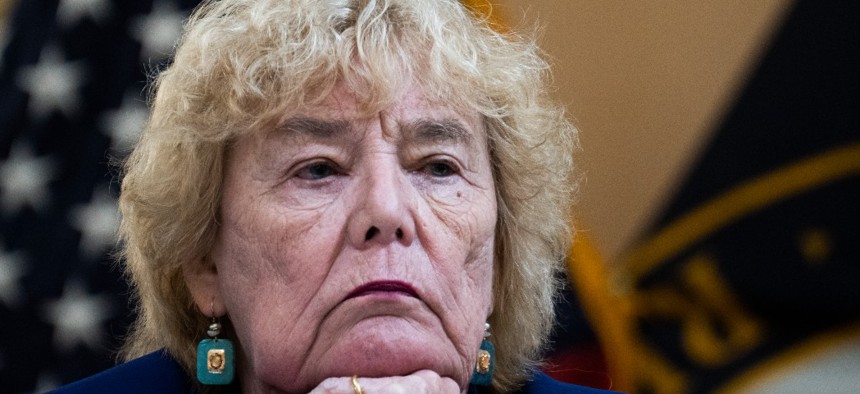Agencies Need More Tech Expertise to Support Future Data Privacy Legislation

Rep. Zoe Lofgren, D-Calif., attends the Select Committee to Investigate the January 6th Attack on the United States Capitol markup in Cannon Building. Tom Williams/CQ-Roll Call, Inc via Getty Images
California Rep. Zoe Lofgren said her proposed bill to govern data privacy standards will require expert judgements by regulatory agencies.
Enhanced online privacy laws may require more agency expertise on advanced technology to properly protect the public’s rights, a lawmaker said on Wednesday,
Speaking during an NVIDIA conference, Rep. Zoe Lofgren, D-Calif., described how agencies like the Federal Trade Commission could expand their knowledge base to support bills like the Online Privacy Act, which she sponsored.
The bill would bolster online user rights regarding companies’ collection and retention of their data and establish a federal Digital Privacy Agency to help enforce current and new privacy laws. Lofgren said that more agency participation can protect online users, but requires a more advanced understanding of technology and privacy policy.
“In our research, it became clear to us that the FTC doesn't have the depth of technology expertise that probably would be required. And although the new agency that the bill would establish is related to privacy—in thinking about it and talking about it—I think that role could be expanded,” Lofgren said. “Because right now, we don't have the expertise on a number of policies.”
She specified that competition and cybersecurity policy are two areas that need to be addressed within federal regulatory bodies.
Having public offices supporting emerging technology policy and regulation can then better support user rights.
“Everything is digital at this point,” Lofgren said. “From your health information to your information about your family, and your friends, and your appearance, and where you live, and what you think—it's all digitized and it all can be benign, or it can be terribly abused to your individual detriment, or to the detriment of American society. And so I think judgments will need to be made by both individual users as well as the regulatory agency.”
Lofgren said that her bill, also sponsored by fellow Rep. Anna Eshoo, D-Calif., aims to establish a national law governing data privacy. This potential framework would serve as a step in helping establish better oversight and trust in emerging technologies, like artificial intelligence and machine learning, both of which are being used by private companies and law enforcement more frequently.
She also noted that she and her colleagues are looking for further input from industry experts on the bill and its provisions and implications.
“I am hopeful that as we move forward, people with expertise in technology and then human rights, will share their thoughts with us,” she said. “If we can move this forward, I think our country and the world will be a better place. But that will be especially true if we get even more input from people who are wise and knowledgeable about technology, human rights, privacy standards and the like.”






